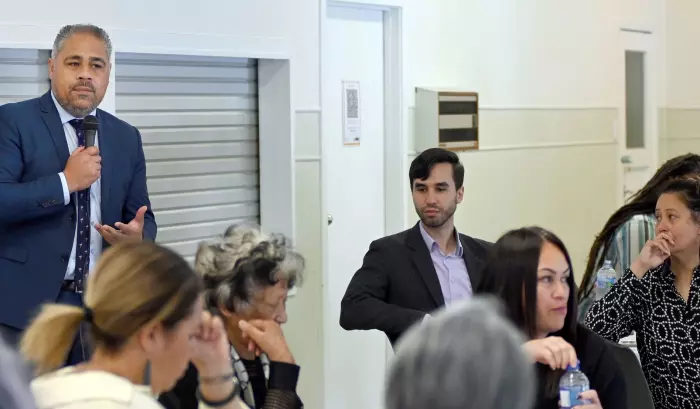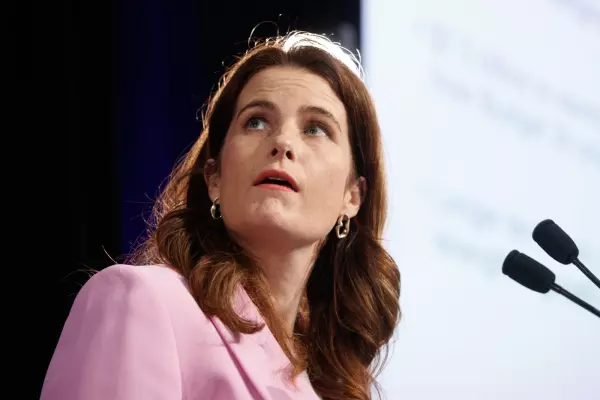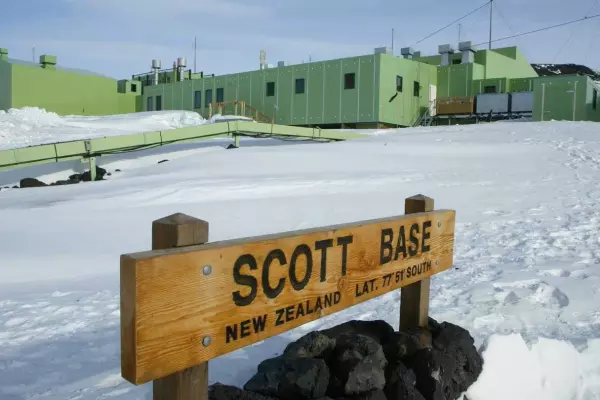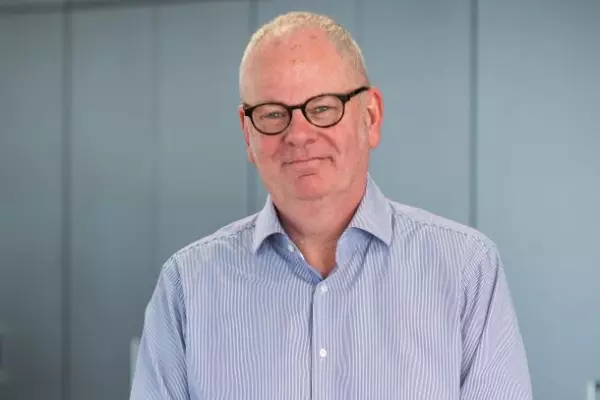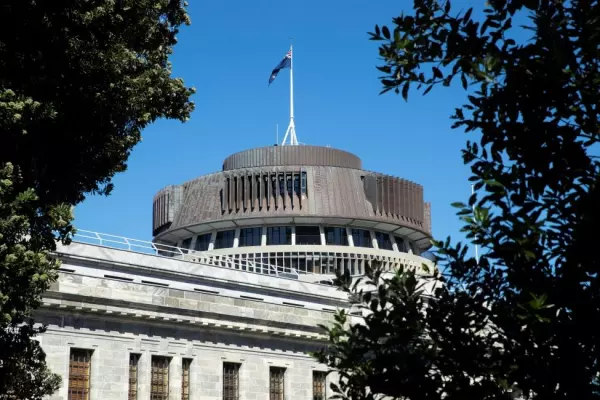Jem Traylen talks to a young policy analyst about why he was keen to join the public service and how he would like to see it develop over the next 20 years.
When stakeholders meet with associate health minister Peeni Henare, chances are there’s a young public servant in his entourage by the name of Clyde Smith.
He’s the one anxiously looking at his watch as the meeting approaches its scheduled end and ushering the minister out the door to his next appointment.
Despite having to be the bad guy who breaks up the conversation, Clyde says travelling with the minister is his favourite part of the job.
He is part of a high-flying cohort of public servants who are seconded from public agencies to work in the Beehive. They carry the unassuming job title of “private secretary”, but they provide the all-important conduit between minister and ministry.
“Any briefings that go to the minister come through me, and I check over them first and provide some advice on top of that.”
If that doesn’t sound like enough responsibility, the pressure really comes on Clyde when the minister is called into Parliament to answer questions on his delegated area of responsibility for Māori health.
“If our minister gets asked one of those, we find out in the morning and we have to frantically, within two hours, commission the ministry to get a response.”
After answering it, the minister will then be quizzed on an unannounced series of follow up questions.
“So you have to be aware of what's in the media, even though that's not our role. But we need to be politically savvy, right?”
Corridors of power
The role of a “private sec” – unlike the political advisers who are not public servants – involves walking the line between the public service and the politicians. It provides a fascinating fly-on-the-wall view of how ministers govern.
“At university, you can learn about it at a high level, but you wonder ‘How the heck does that work in practice?’
“So to see it work in practice, to be the person managing the relationships between the minister and cabinet, and someone like Ashley Bloomfield and his executive leadership team – that's been really fascinating to see the tensions, but also the opportunities that those relationships can bring.”
It can also be very overwhelming, as Māori health policy has been Clyde’s passion since his second year at university: “And suddenly I’m working in the Beehive on it.”
This young Māori man from rural Gisborne walks through the corridors of power and thinks “that’s where a lot of the policies that impacted me positively and negatively were written".
Child of the welfare state
As he begins to open up about his back story, BusinessDesk checks whether he wants some details on the public record. He insists his life is an open book.
“Actually, I see sharing stories like this as a really powerful way of showing why things need to change.”
Clyde has two university degrees and is working towards a third, but you might say he first graduated from the school of hard knocks.
“That experience of growing up in Gisborne seeing the things that I did, experience the things that I did, particularly poverty … socio-economic deprivation and I would say addiction as well.
“There's a lot of alcoholism in my family, and that itself causes a lot of issues and abuse.”
The first face of the public service that he knew were officials from the then Child, Youth and Family Services intervening in his whanau’s affairs.
And at the age of eight, he had his first encounter with the public health system after being admitted to Auckland's Starship Hospital with a bout of pneumonia caused by poor insulation in one of the many rental houses he lived in during a transient childhood.
“I actually thought it was quite normal to be cold at night, you know, and shivering.”
But he sees a silver lining in growing up as a child of the welfare state. It enlightened him on a lot of the issues the public sector is called on to deal with and showed him how government services work on the ground.
Eye-opening experiences
While he was a student, Clyde also worked as a hospital administrator where he saw first-hand how people from different parts of Auckland faced vastly different waiting lists to get specialist appointments.
“I got to see how government policy was impacting on the people that we are caring for.
“I am so grateful for that experience, because people who work and who have only worked in policy and Wellington, they don't see that part of the health system.”
Another eye-opener came from a prime minister’s scholarship which sent him on a policy internship with a health consultancy in Mumbai, India, where he worked with local communities on hygiene practices in schools.
“You can look at New Zealand's issues, and then look at India's issues, and, you know, some parallels, but it's also starkly different.
“And that experience, again, consolidated me wanting to go into health policy because I thought this is where we can make the biggest gains.”
He believes his real-world experiences are one of the strengths he brings to his substantive role as a policy analyst – but during the recruitment process, his hiring manager had to go into bat for him because of concerns he didn’t have the requisite policy experience.
“The hiring manager's view was that ‘He does have policy experience, it's just not as a policy analyst, and actually, he's got lived experience’.
“That is something that we should value in the public service: you don't get many people growing up in rural New Zealand and poverty going into the public service to work in policy.”
Fortunate events
It was only through a series of fortunate events that he ended up working in policy.
He sees one of the big issues with career pathways into the public service is that many people like him fall into the role rather than being supported and guided into it.
“I'm a very rare example of that happening.”
Perhaps the first of these fortunate events was being sent on hospital placements by a scheme called Kia ora Hauora, which ignited a desire to go to medical school.
Clyde says it’s an excellent example of where Māori-focused equity initiatives can have a huge impact on getting Māori into the health workforce.
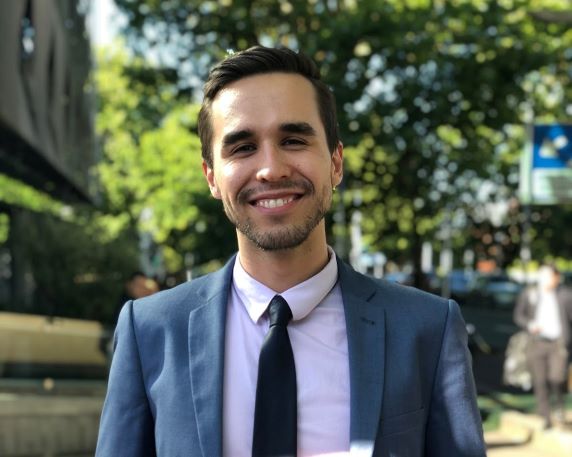 Clyde Smith says it shouldn't take a series of fortunate events for someone from his background to be recruited into the public service (Image: supplied)
Clyde Smith says it shouldn't take a series of fortunate events for someone from his background to be recruited into the public service (Image: supplied)A second fortunate event was being sent to a biomedical summer school organised by the Liggins Institute, where he got to pitch ideas on how to improve Māori health.
He worked with a team of students on an initiative to promote healthier eating to combat obesity and food poverty.
They managed to get Buck Shelford on board as a sponsor and implement the promotion at Onehunga High School.
This opened his eyes to how public health initiatives can improve the wellbeing of Māori communities, eventually leading him to focus his academic studies on population health.
Another was attending a guest lecture by a gifted communicator from the Ministry of Health, the late Stewart Jessamine.
“I remember from that moment all these pieces of the puzzle were fitting together. And I was like, ‘Oh, my gosh, I can go and be a public servant! I can go work at the Ministry of Health’.”
One of those pieces of the puzzle was coming to terms with his Māori heritage.
Clyde affiliates to Te Whānau-a-kai iwi, but for many years would often refuse to even say he was Māori.
“It wasn't until university that I started to kind of shed what I call that internalised racism.”
Some of his classes were quite an emotional experience, such as the ones discussing the impacts of intergenerational trauma caused by colonisation and its links to cycles of abuse and addiction among Māori.
“I would sit in lectures, like crying, just thinking, ‘Oh my gosh … how did I not know this?’ It felt like therapy.”
That's when he started getting really interested in public policy, and specifically, how to incorporate te ao Māori (the Māori worldview) and the Treaty of Waitangi into those processes.
Better public services
Which brings us to his vision of what improvements he would like to see the public service make over the next 20 years.
Te Tiriti. People talk about the principles of the Treaty, but don’t know how to practically apply that to their own contexts in the public sector. “So how you apply the Treaty for a data team will be different to a policy team, and that’ll be different to the finance team, so everyone needs to have their capability lifted.”
Technology. An efficient and effective public service needs to keep pace with the latest developments in technology and not lag behind the private sector. “I acknowledge that it costs a lot. It requires a lot of investment, but technology is key.”
Collaboration. In 20 years’ time problems will only be more complicated, so government agencies need to be better at working together. “We know that health is not created in the health sector. Actually, health and prevention is going to happen across government. So I hope that in the future, there are much less boundaries in place between government agencies.”
Citizen-centred. The public sector needs to take more of a bottom-up approach in designing and delivering services. There should be more people working in regional offices, rather than in Wellington and technology should help with meaningful engagement with citizens throughout a policy process. “We tend to think we will go and engage with some discrete groups at this point, and at this point, and that's it.”
Workforce. The public service needs to closely reflect the communities that it serves. Diversity also means more than just demographics. “I think we should be talking about diversity of lived experience, looking at diversity of skills and knowledge, and broadly diversity in worldviews because it's only when we have that diversity, that I think we'll be able to create those solutions to those complex problems.”
To achieve that last goal, Clyde thinks there need to be clearer and more comprehensive career pathways, so it doesn’t take a series of fortunate events to get someone like him into the job.
“We should be going into schools and communities, particularly rural communities, saying, ‘Hey, this is what a public servant is, this is what we do. These are your options.'
“I just want people to be aware of that, and for there to be intentional planning on getting these people into the public service.”
The views expressed in this article are Clyde’s own and not those of his employers.


